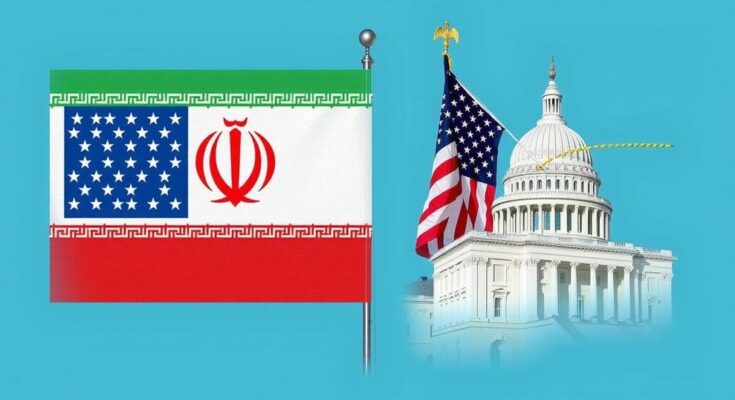Iran’s Foreign Minister Abbas Araghchi outlined that negotiations with the U.S. regarding nuclear issues are dependent upon the U.S. returning to the JCPOA or providing a clear policy. Meanwhile, Iran is willing to negotiate with European nations, China, and Russia, amidst stalled talks primarily due to U.S. sanctions. The JCPOA was originally established in 2015, but discussions to revive it have seen significant hurdles in recent months.
The Iranian Foreign Minister, Abbas Araghchi, has declared that negotiations concerning the nuclear issue with the United States are contingent upon the U.S. reverting to the Joint Comprehensive Plan of Action (JCPOA) or articulating a clear policy on the matter. In a televised interview with Iran’s national television, Araghchi asserted that Iran would continue to engage in discussions with European nations, China, and Russia, despite the stalled negotiations with the U.S., emphasizing that Iran never left the negotiating table concerning its nuclear program.
Araghchi confirmed ongoing dialogues with the UK, France, and Germany, as well as with European Union officials, aiming to explore pathways to renew nuclear negotiations. He reaffirmed that Iran is confident in the peaceful character of its nuclear ambitions and remains committed to providing assurances to the international community. This comes amidst the backdrop of stalled talks since August, largely due to a hardline U.S. stance on sanctions imposed by the preceding administration.
The JCPOA was established in 2015 between Iran, the six major powers, and aimed at curtailing Iran’s nuclear capabilities in exchange for sanction relief. However, these discussions seeking to reinstate the agreement have faced difficulties, particularly following former President Donald Trump’s withdrawal in 2018. Current President Joe Biden’s administration has indicated a willingness to restore the deal, but ongoing negotiations have yet to yield significant progress due to contentious standpoints, particularly regarding sanctions.
The negotiation discussions regarding Iran’s nuclear program have been ongoing since the JCPOA was established in 2015 by Iran and six major powers, including the permanent members of the UN Security Council. The deal aimed to limit Iran’s nuclear capabilities in exchange for the lifting of economic sanctions. Following former President Trump’s withdrawal from the agreement in 2018, efforts to revive the deal have been complicated, particularly by the U.S. government’s insistence on maintaining a firm position on sanctions. The current negotiations, which started in 2021 in Vienna, have yet to achieve substantial progress since coming to a halt in August 2021. Iran has emphasized the need for guarantees regarding the commitment to any agreements made in the negotiations.
In conclusion, Iran’s Foreign Minister Abbas Araghchi has clearly articulated that any nuclear negotiations with the United States will only proceed after the U.S. recommits to the JCPOA or clarifies its policy surrounding the agreement. Despite the challenges posed by stalled discussions related to sanctions, Iran remains open to conversations with European nations and other global powers, reaffirming its stance on the peaceful nature of its nuclear program. The future of the JCPOA and resumption of negotiations continues to depend heavily on the political dynamics surrounding U.S. sanctions and commitments.
Original Source: en.mehrnews.com




